Abstract
Countercontrol is a functional class of behavior that is part of Skinner's analysis of social behavior. Countercontrol refers to behavioral episodes comprised of socially mediated aversive controlling conditions and escape or avoidance responses that do not reinforce, and perhaps even punish, controllers' responses. This paper suggests that neglect of countercontrol in modern behavior analysis is unfortunate because the concept applies to interpersonal and social relations the fundamental operant principle that human behavior is both controlled and controlling—humans are not passive and inflexible. Countercontrol is addressed here in terms of conceptual status, contemporary developments in behavior analysis, its importance in a behavior-analytic approach to freedom and cultural design, applications, and research. The main conclusion is that Skinner's formulation of counter-control is scientifically supported and worthy of increased prominence in behavior analysis.
Keywords: countercontrol, coercion, control, aversive control, social contingencies
Full text
PDF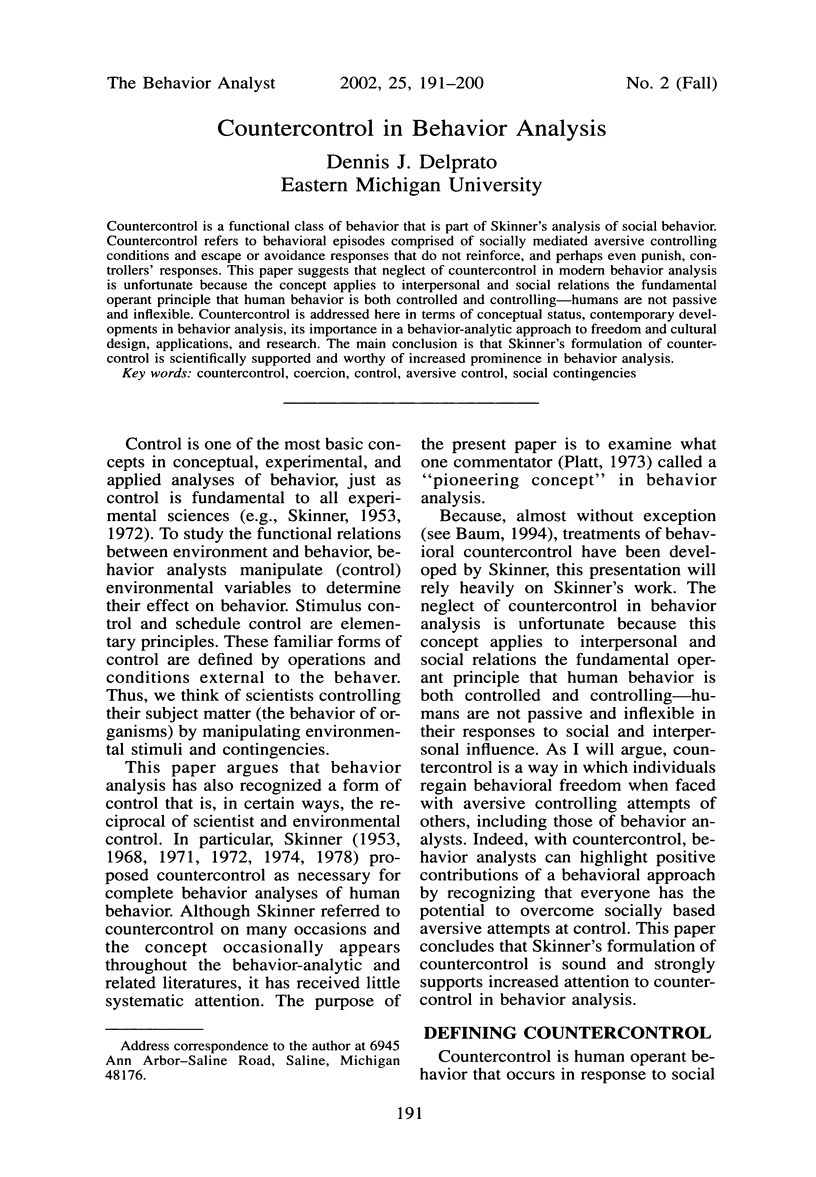
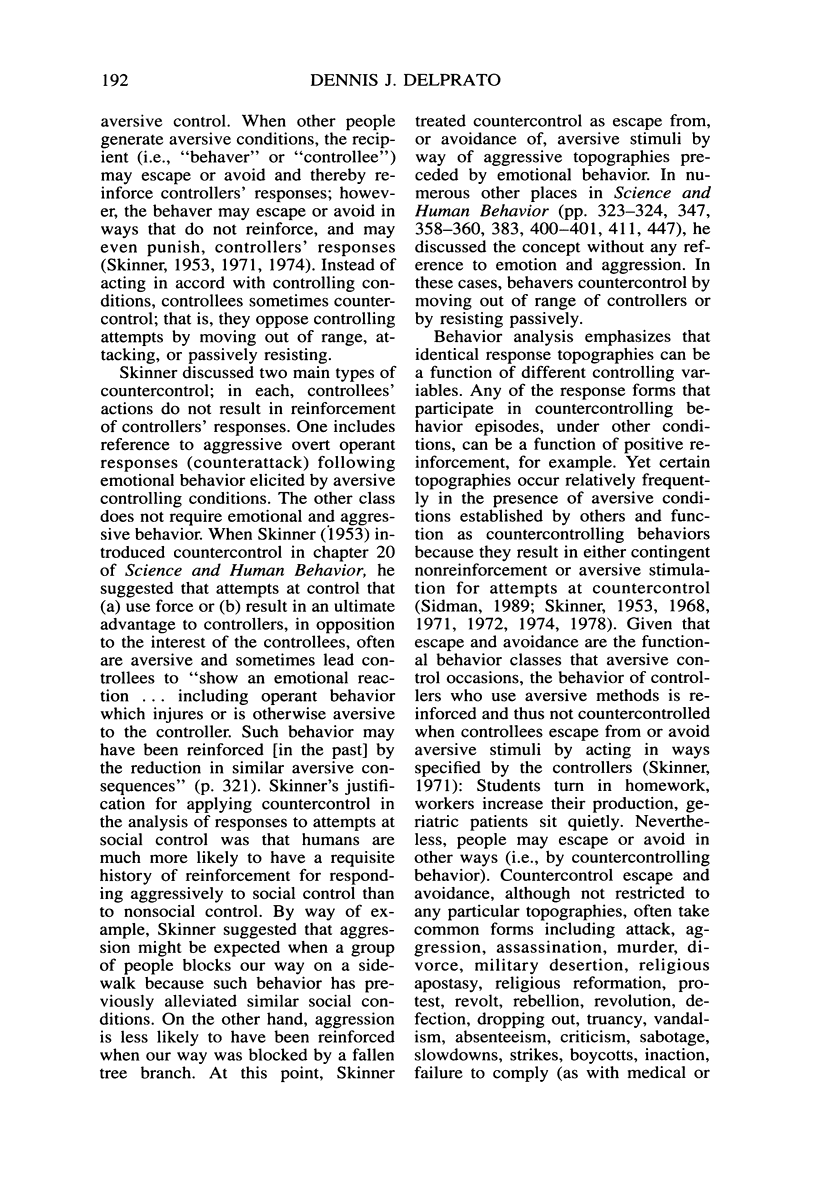
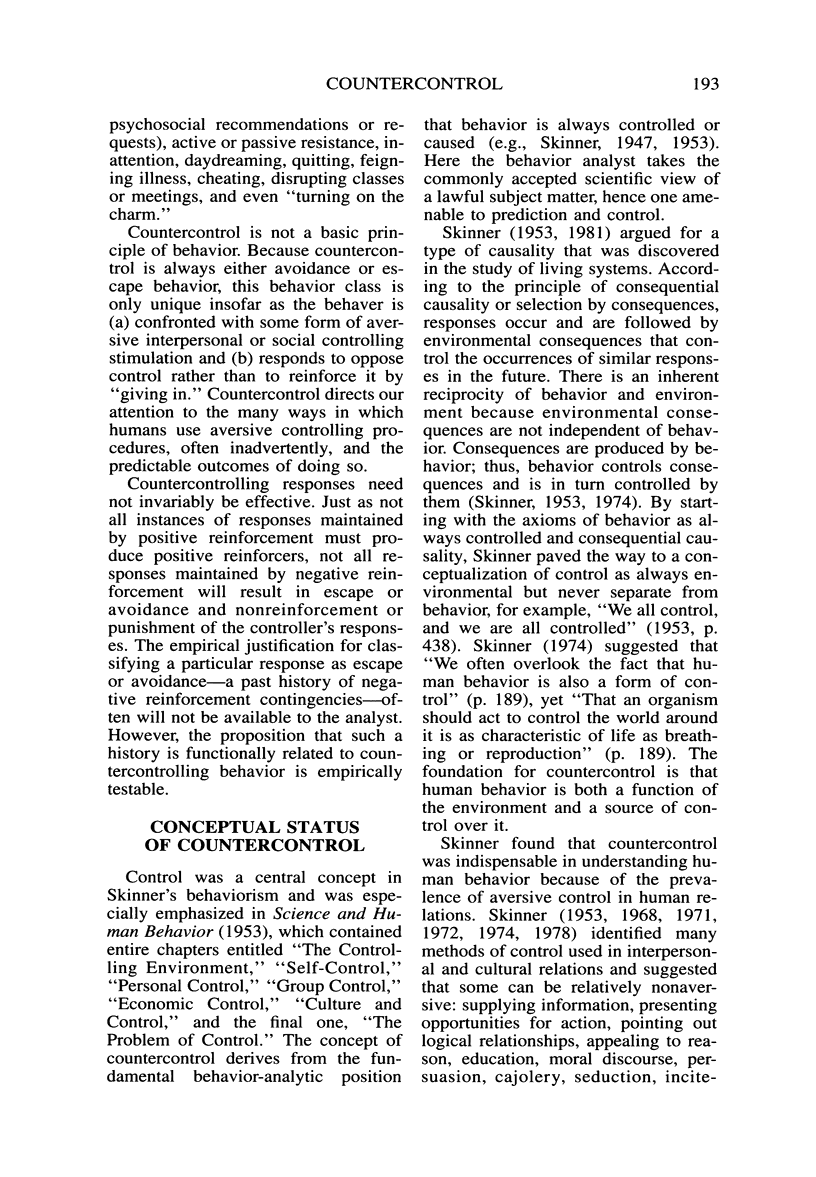
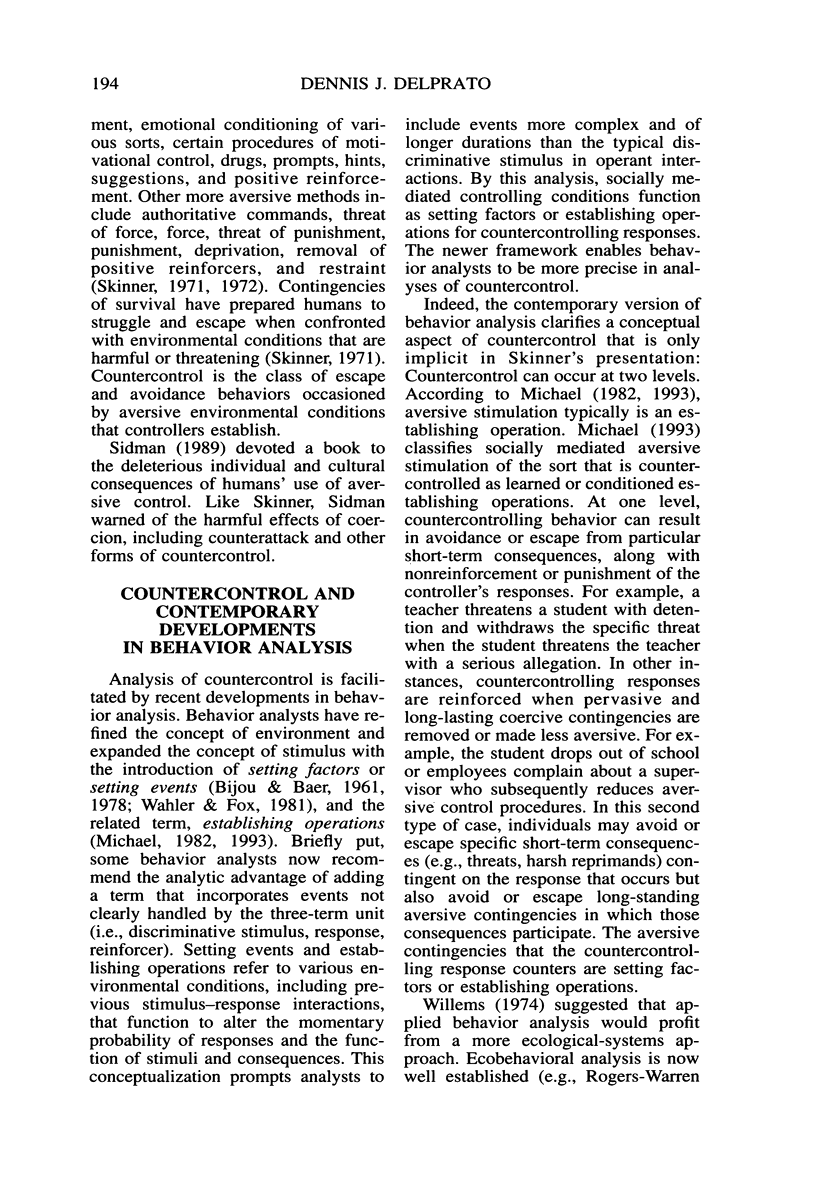
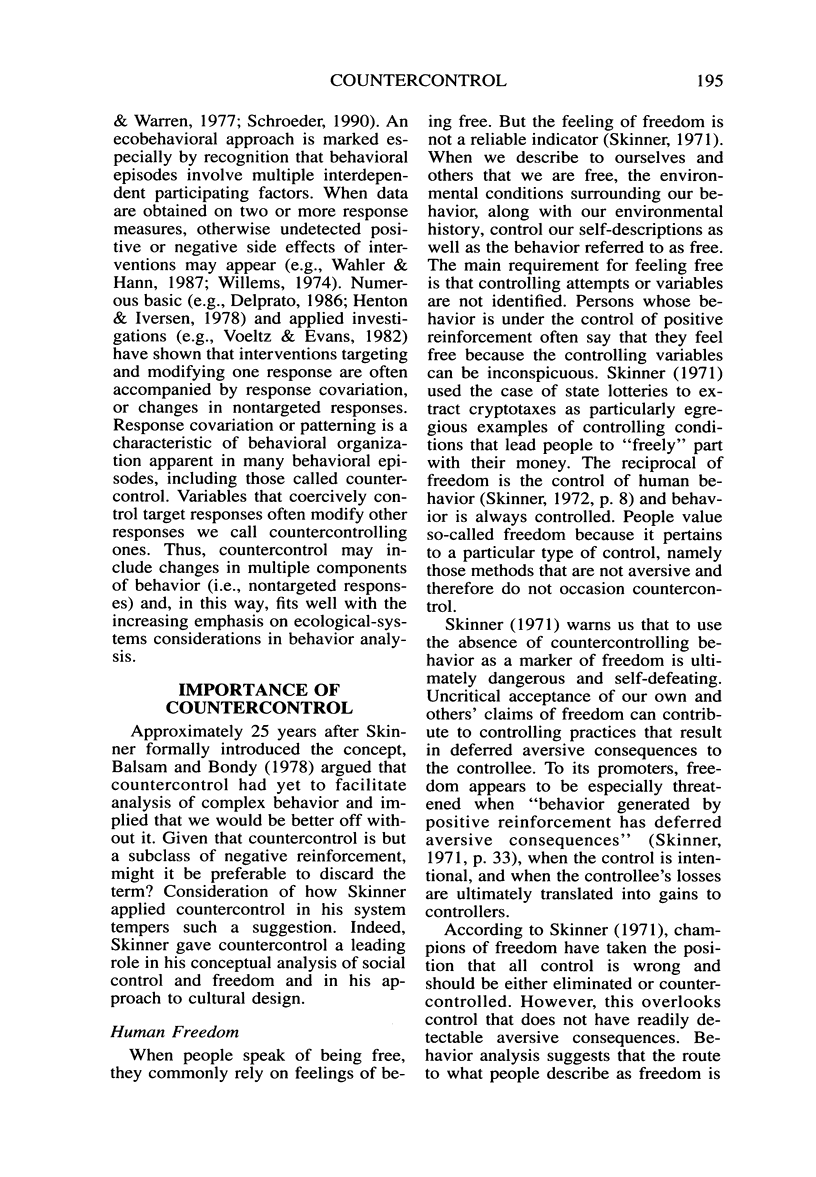
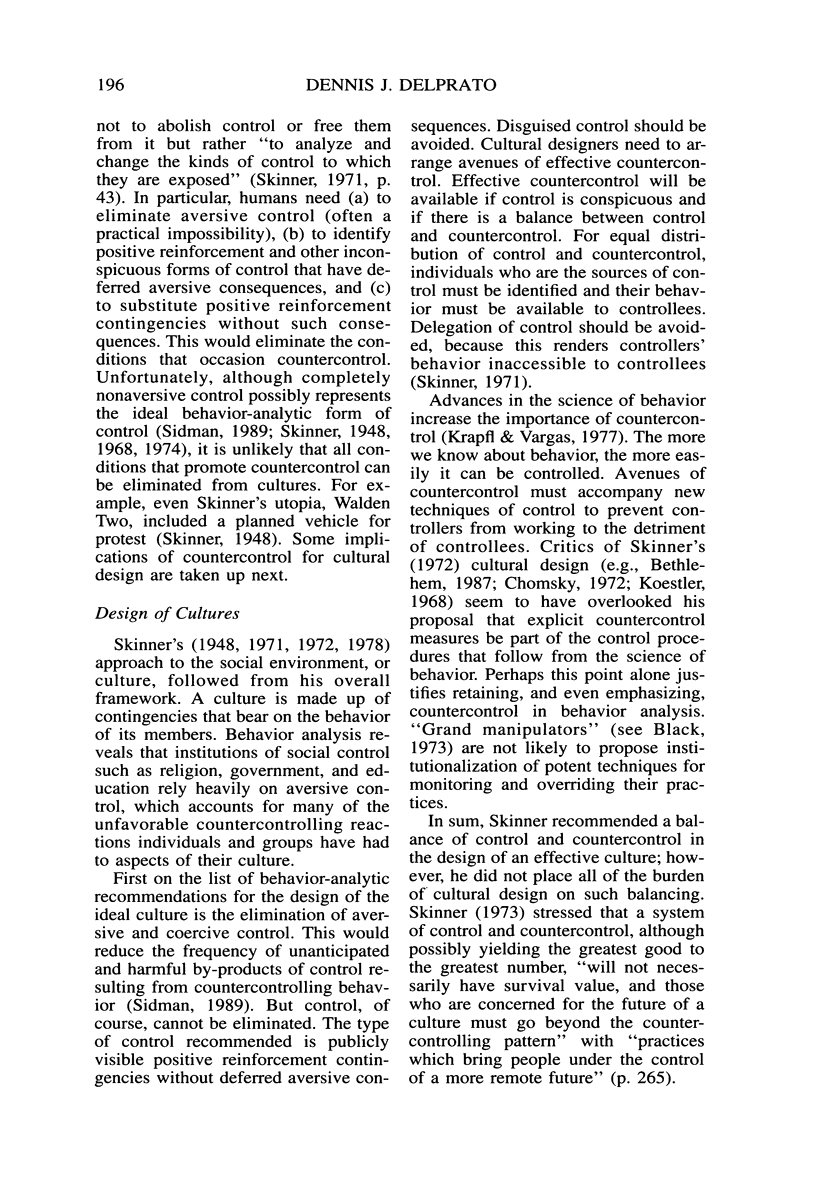
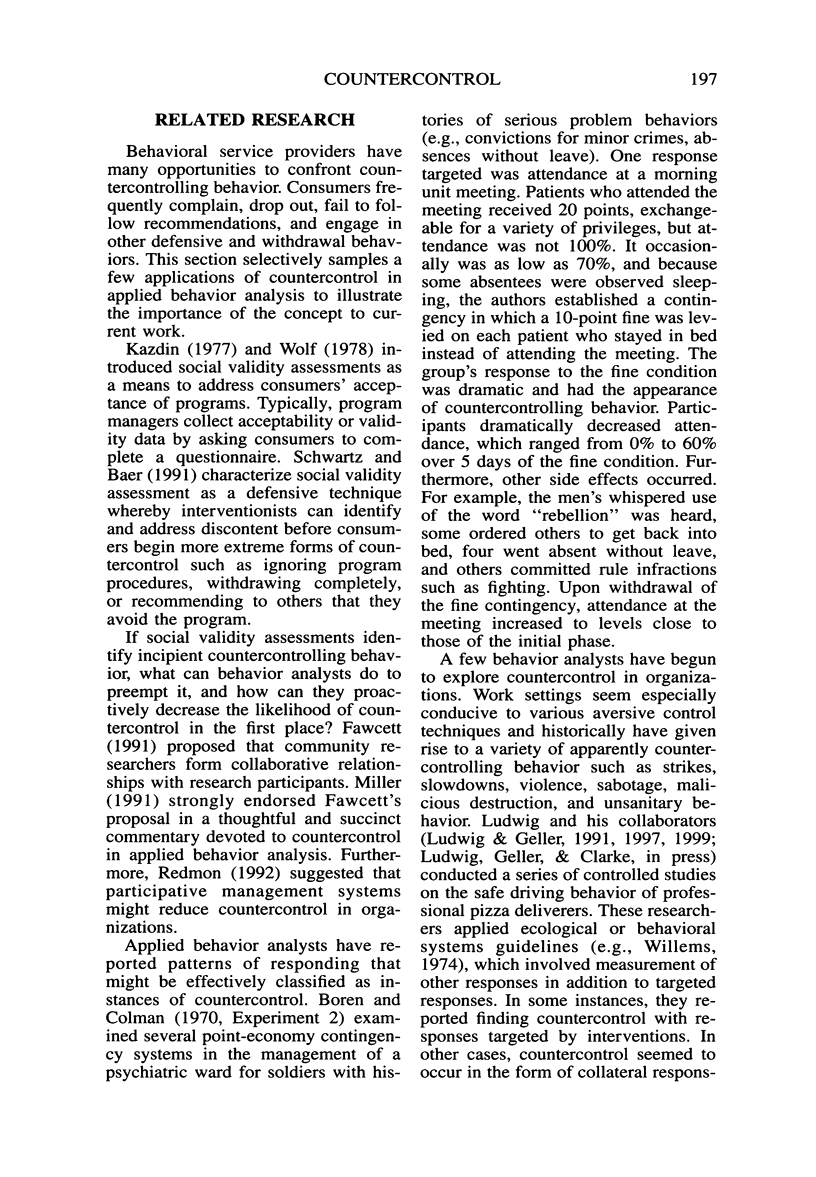
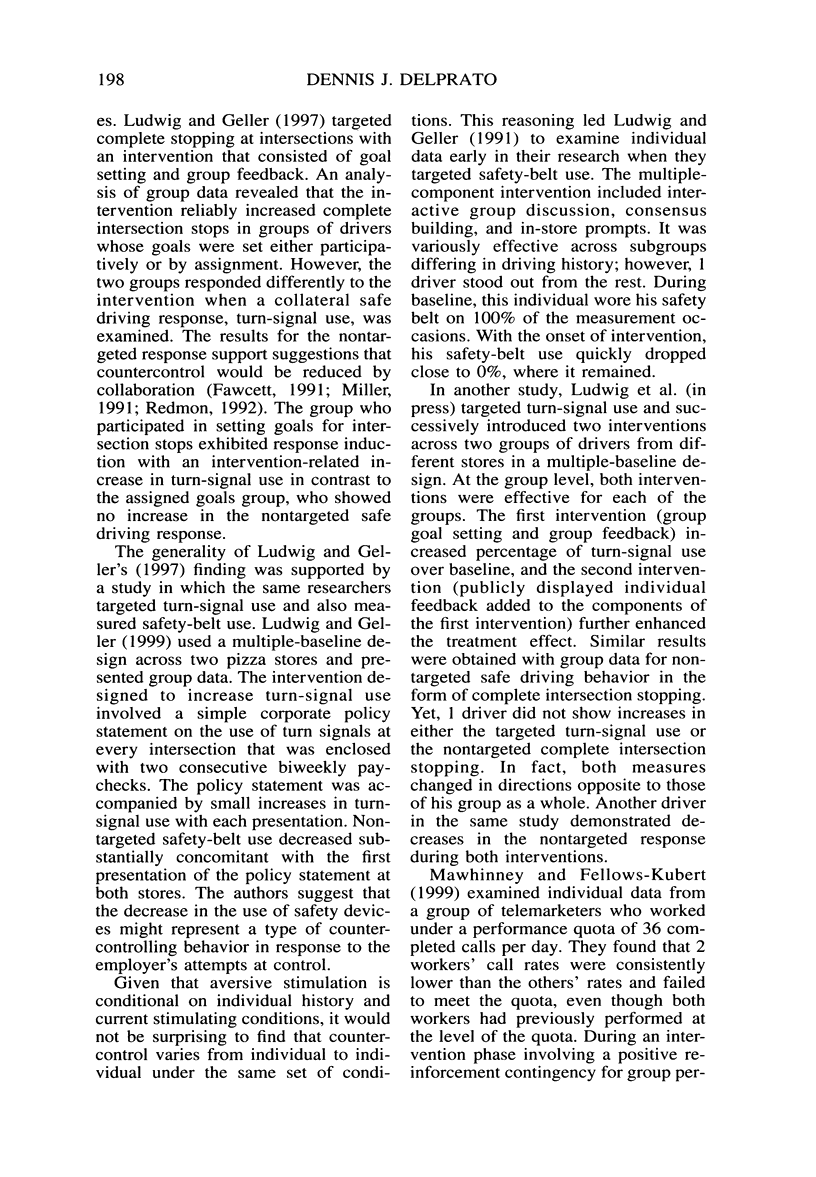
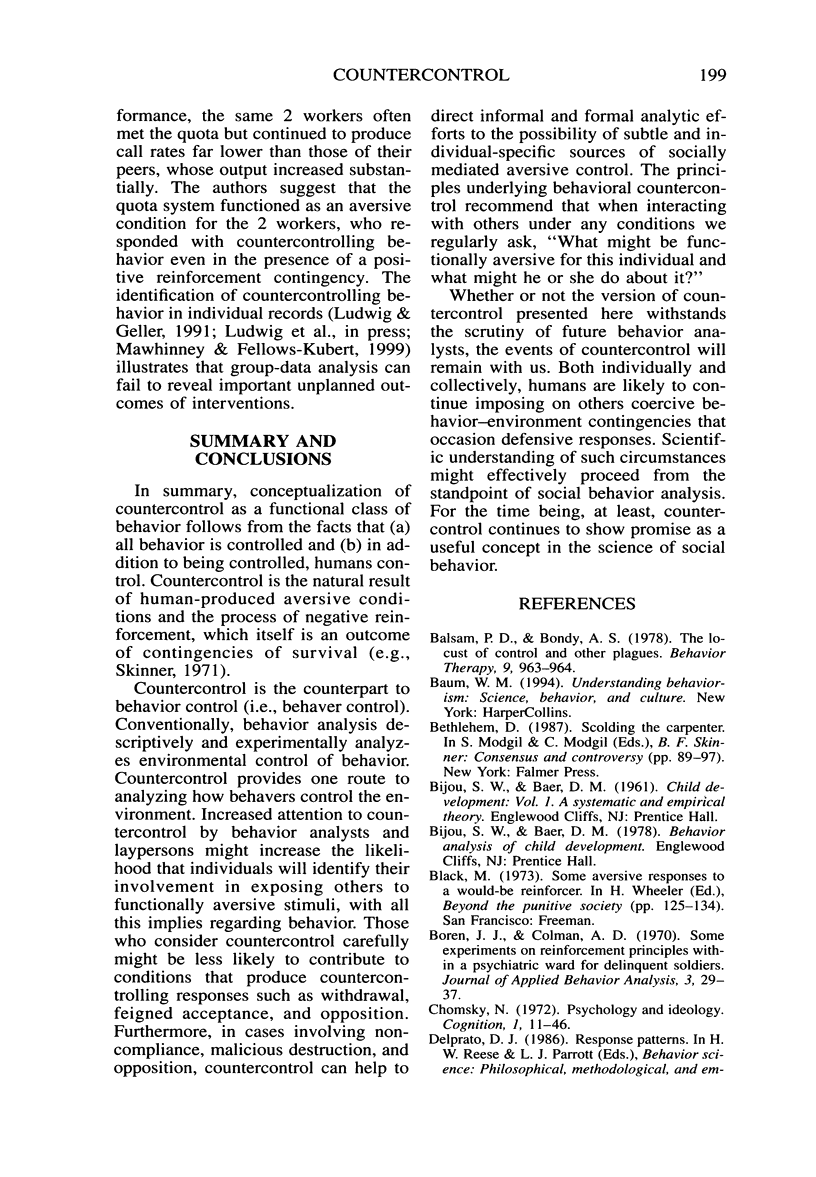
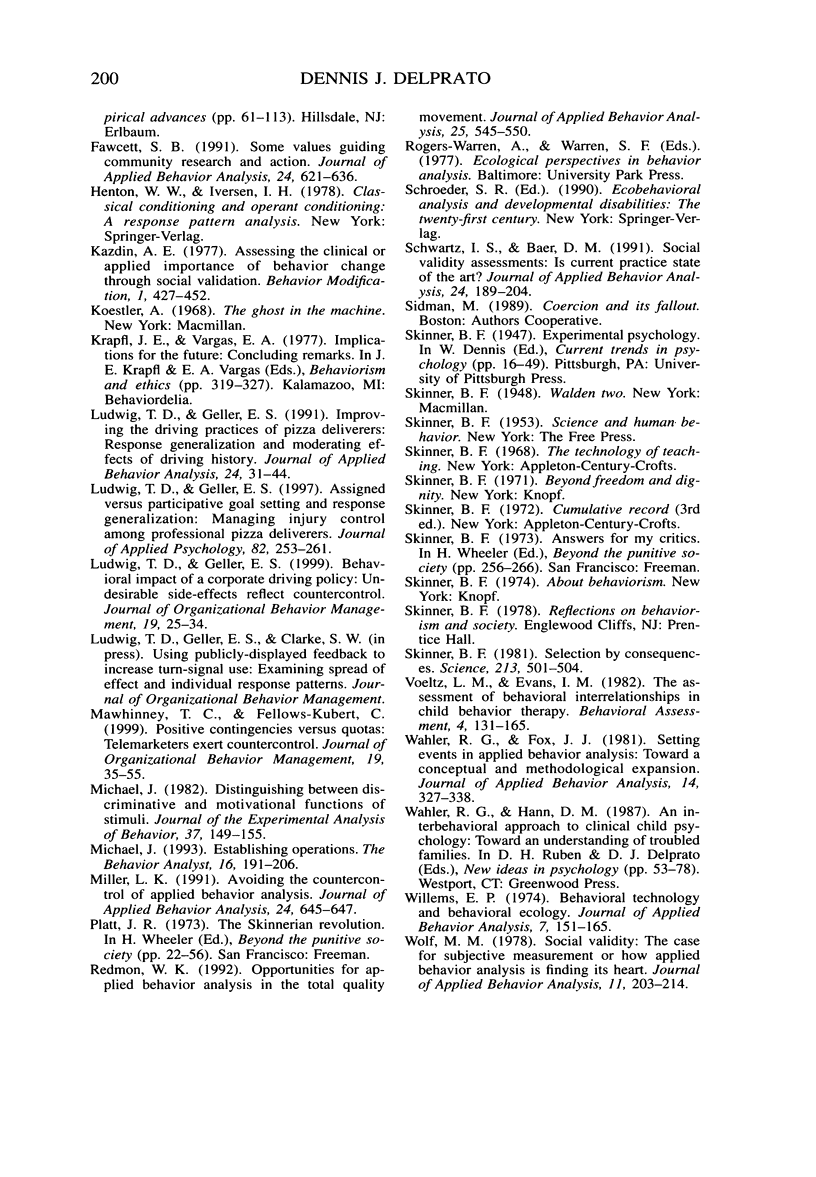
Selected References
These references are in PubMed. This may not be the complete list of references from this article.
- Boren J. J., Colman A. D. Some experiments on reinforcement principles within a psychiatric ward for delinquent soldiers. J Appl Behav Anal. 1970 Spring;3(1):29–37. doi: 10.1901/jaba.1970.3-29. [DOI] [PMC free article] [PubMed] [Google Scholar]
- Fawcett S. B. Some values guiding community research and action. J Appl Behav Anal. 1991 Winter;24(4):621–636. doi: 10.1901/jaba.1991.24-621. [DOI] [PMC free article] [PubMed] [Google Scholar]
- Ludwig T. D., Geller E. S. Assigned versus participative goal setting and response generalization: managing injury control among professional pizza deliverers. J Appl Psychol. 1997 Apr;82(2):253–261. doi: 10.1037/0021-9010.82.2.253. [DOI] [PubMed] [Google Scholar]
- Ludwig T. D., Geller E. S. Improving the driving practices of pizza deliverers: Response generalization and moderating effects of driving history. J Appl Behav Anal. 1991 Spring;24(1):31–44. doi: 10.1901/jaba.1991.24-31. [DOI] [PMC free article] [PubMed] [Google Scholar]
- Michael J. Distinguishing between discriminative and motivational functions of stimuli. J Exp Anal Behav. 1982 Jan;37(1):149–155. doi: 10.1901/jeab.1982.37-149. [DOI] [PMC free article] [PubMed] [Google Scholar]
- Michael J. Establishing operations. Behav Anal. 1993 Fall;16(2):191–206. doi: 10.1007/BF03392623. [DOI] [PMC free article] [PubMed] [Google Scholar]
- Miller L. K. Avoiding the countercontrol of applied behavior analysis. J Appl Behav Anal. 1991 Winter;24(4):645–647. doi: 10.1901/jaba.1991.24-645. [DOI] [PMC free article] [PubMed] [Google Scholar]
- Redmon W. K. Opportunities for applied behavior analysis in the total quality movement. J Appl Behav Anal. 1992 Fall;25(3):545–550. doi: 10.1901/jaba.1992.25-545. [DOI] [PMC free article] [PubMed] [Google Scholar]
- Schwartz I. S., Baer D. M. Social validity assessments: is current practice state of the art? J Appl Behav Anal. 1991 Summer;24(2):189–204. doi: 10.1901/jaba.1991.24-189. [DOI] [PMC free article] [PubMed] [Google Scholar]
- Skinner B. F. Selection by consequences. Science. 1981 Jul 31;213(4507):501–504. doi: 10.1126/science.7244649. [DOI] [PubMed] [Google Scholar]
- Wahler R. G., Fox J. J. Setting events in applied behavior analysis: Toward a conceptual and methodological expansion. J Appl Behav Anal. 1981 Fall;14(3):327–338. doi: 10.1901/jaba.1981.14-327. [DOI] [PMC free article] [PubMed] [Google Scholar]
- Willems E. P. Behavioral technology and behavioral ecology. J Appl Behav Anal. 1974 Spring;7(1):151–165. doi: 10.1901/jaba.1974.7-151. [DOI] [PMC free article] [PubMed] [Google Scholar]
- Wolf M. M. Social validity: the case for subjective measurement or how applied behavior analysis is finding its heart. J Appl Behav Anal. 1978 Summer;11(2):203–214. doi: 10.1901/jaba.1978.11-203. [DOI] [PMC free article] [PubMed] [Google Scholar]


